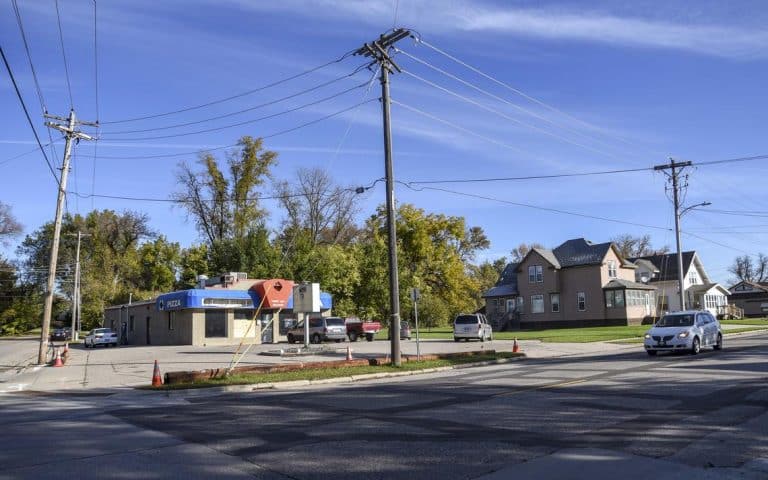When former Minnesota Gov. Mark Dayton released his list of the 128 census tracts chosen to be Qualified Opportunity Zones, Kandiyohi County had a single one. A mix of commercial and residential, the zone in Willmar includes most of downtown, portions of the First Street and U.S. Highway 12 corridors and swaths of residential areas.
Part of the Tax Cuts and Job Act of 2017, Opportunity Zones offer investors a place to invest their capital gains and receive tax breaks on those investments. Most Opportunity Zones are neighborhoods with low incomes and low property values. The zone in Willmar is probably the most population-dense area of the city and also has the lowest median income.
“These were low-income communities where the federal government is urging development,” said Aaron Backman, Kandiyohi County and City of Willmar Economic Development Commission executive director.
The goal of the Opportunity Zone is to develop or redevelop these zones, which should benefit those living and working in those areas by increasing economic development and job creation, according to the Internal Revenue Service. Investors wanting to take advantage of the tax breaks need to invest their capital gains into a qualified opportunity fund, which then provides the money for development projects in an Opportunity Zone.
The duration of the investment will determine the amount of the tax break. For example, if investors keep their money in the fund for 10 years, they will not have to pay tax on the capital gains earned through the Opportunity Zone project.
Since most of the zone in Willmar is already built up, it will mostly be redevelopment projects that could take place there.
“We think there are several redevelopment sites,” Backman said, who added he would personally like to see some mixed-use development — a residential and commercial project — as well as redevelopment of the Highway 12 corridor near the old Domino’s Pizza location.
For any development project to take place, Willmar’s zone needs to be brought to the attention of investors.
“I believe it will require a significant marketing effort,” Backman said.
This is why the EDC has entered into a contract with Golden Shovel Agency, an economic development marketing firm with Opportunity Zone experience.
“We work with communities like Willmar to enhance their marketing and messaging,” said Ron Kresha, COO/CFO of Golden Shovel. “We hope to enhance that and bring our knowledge of site selection and marketing.”
Both the EDC Joint Operations Board and the Joint Powers Board approved the contract. The total cost was $18,500, with Willmar Main Street providing $5,000 and the EDC picking up the remaining $13,500.
Golden Shovel has been assisting the EDC in creating a marketing strategy for the Opportunity Zone, is promoting awareness of the zone and is targeting key industry players. Golden Shovel is also creating a prospectus to inform investors, developers and others about the Opportunity Zone in Willmar.
“The important piece is to tell the right story, so you are attracting the right investor,” Kresha said.
Because it takes a decade to obtain the full worth of the tax breaks, an Opportunity Zone investor shouldn’t be looking for a quick turnaround. They need to be patient.
“It will take a special investor,” Kresha said.
The potential investors do not need to have a lot of money or be located in New York City. Local investors will be an important part of any Opportunity Zone fund and project.
Large Opportunity Zone projects have already been announced in St. Paul, as well as in other major cities. But, once those metropolitan Opportunity Zones are all developed, Kresha believes investor attention will turn to the next level, which includes places like Willmar.
“You really are a leader in rural Minnesota for many, many things,” Kresha said. “When investors start looking, Willmar will be at the top.”
Any projects that are constructed in Willmar will have to fit the neighborhood. Kresha and Backman are not worried that a high-end apartment building will be built and price the community out of the neighborhood, mostly because Willmar doesn’t have the market for such a facility. Instead, a potential project could be a senior housing complex or office space for startups.
“It’s got to be appropriate,” Backman said.
Both Kresha and Backman believe the Willmar Opportunity Zone will be an opportunity to turn around a struggling neighborhood and provide Willmar with successful development projects.
“This will change people’s lives,” Kresha said. “My hope for Willmar is it becomes a community program, a unifier. Something you hang your hat on.”

